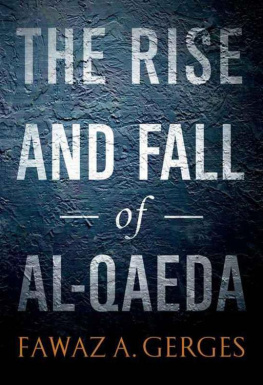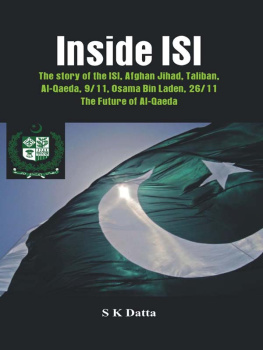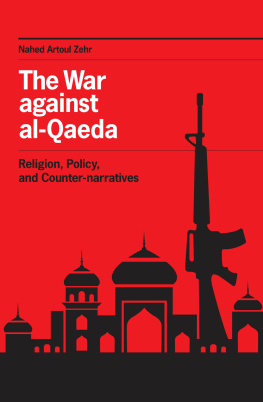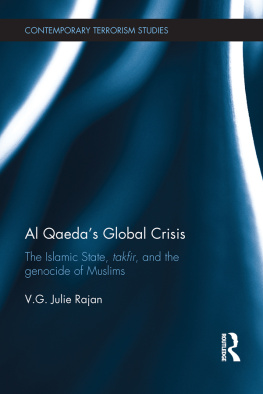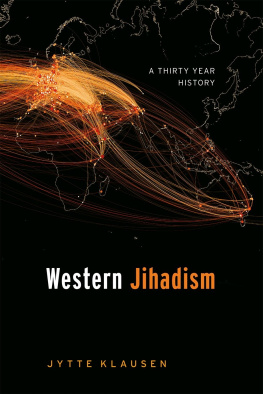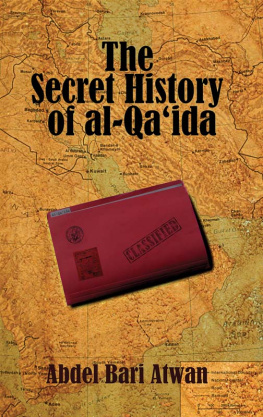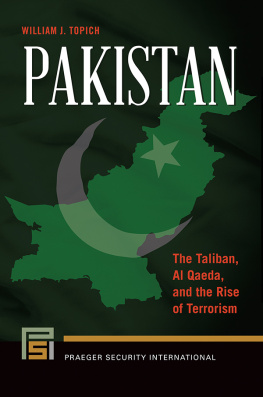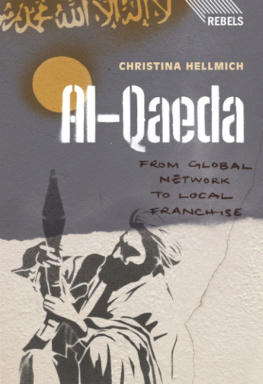THE RISE AND FALL OF AL-QAEDA
THE RISE AND FALL
OF AL-QAEDA
Fawaz A. Gerges


Oxford University Press, Inc., publishes works that further
Oxford Universitys objective of excellence
in research, scholarship, and education.
Oxford New York
Auckland Cape Town Dar es Salaam Hong Kong Karachi
Kuala Lumpur Madrid Melbourne Mexico City Nairobi
New Delhi Shanghai Taipei Toronto
With offices in
Argentina Austria Brazil Chile Czech Republic France Greece
Guatemala Hungary Italy Japan Poland Portugal Singapore
South Korea Switzerland Thailand Turkey Ukraine Vietnam
Copyright 2011 by Fawaz A. Gerges
Published by Oxford University Press, Inc.
198 Madison Avenue, New York, New York 10016
www.oup.com
Oxford is a registered trademark of Oxford University Press
All rights reserved. No part of this publication may be reproduced,
stored in a retrieval system, or transmitted, in any form or by any means,
electronic, mechanical, photocopying, recording, or otherwise,
without the prior permission of Oxford University Press.
Library of Congress Cataloging-in-Publication Data
Gerges, Fawaz A., 1958
The rise and fall of Al-Qaeda / Fawaz A. Gerges.
p. c.m
Includes bibliographical references.
ISBN 978-0-19-979065-4 (alk. paper)
1. Qaida (Organization) 2. Terrorism.
3. TerrorismReligious aspectsIslam. I. Title.
HV6432.5.Q2G47 2011
363.325dc22 2011013771
1 3 5 7 9 8 6 4 2
Printed in the United States of America
on acid-free paper
To Avi Shlaim
CONTENTS
ACKNOWLEDGMENTS
There is no space to list all of the numerous colleagues, activists, and strangers in the Middle East who over the years spent countless hours with me, patiently answering my questions and deepening my knowledge of the Islamist and jihadist phenomena. I owe them gratitude for their time and insights, and for sharing their experience with me. I could not have written this book without their personal stories, feedback, and competing narratives.
I want to thank my research assistant Andrew Bowen, a Ph.D. candidate at LSE, who went beyond the call of duty in editing, summarizing, and synthesizing several sections of The Rise and Fall. His work ethic and generosity of spirit are exceptional. I also want to thank Hadi Makarem, a Ph.D. candidate at LSE, who has just joined me as a research assistant. Special thanks are due to colleagues who read and critiqued separate chapters of the book, including Farid Senzai, Mohammed Ayoob, Nader Hashemi, Hassan Abbas, Kamran Bokhari, Antonio Giustozzi, Karim Mezran, Avi Shlaim, Charles Tripp, Claudio Franco, Tarak Barkawi, Omar Ashour, and Marvin Weinbaum.
I appreciate the meticulous and rigorous editing and feedback of my OUP editor, Tim Bent, who invested considerable time and energy in the book. Tim edited my previous book, Journey of the Jihadist, and showed a deep commitment and dedication to its quality.
While at Sarah Lawrence College, New York, I began writing The Rise and Fall and completed it at my present homeLondon School of Economics. Sarah Lawrence, a unique, civilized community, nourishes a fierce sense of academic freedom and critical inquiry and reflection. For all that and more, I am grateful to Sarah Lawrence and Julie Kidd, a visionary and enlightened educator who established my Christian A. Johnson Endeavor Foundation Chair at SLC and provided me with the time to travel and undertake field research. I want to thank the Carnegie Foundation for awarding me a grant that allowed me to spend more than a year in the Middle East. I owe special gratitude to Mike Mahoney who has always been there for me.
The Rise and Fall of Al-Qaeda is dedicated to Oxford Professor Avi Shlaim, not only because he is a dear friend but also because he has debunked a more entrenched and challenging narrative on the Arab-Israeli conflict.
Last but not least, I could not have written this book without my familys love and support. Nora generously offered her insights on Yemen and sharpened the narrative. My son Bassam Gergi, a student of history, put up with my ceaseless inquiries about comparative historical developments in early modern Europe and editorial and technological questions as well. My daughter Annie-Marie was mainly concerned about the rigor of my central argument and often pressed me, are you confident that al-Qaeda no longer poses a real threat? Hannah and Laith only wanted to know when I would complete the book and take them on their favorite outings. Tearing myself away from the family took a lot of willpower and selfishness. In many ways, this book belongs to them.
Fawaz A. Gerges
London
June 1, 2011
THE RISE AND FALL OF AL-QAEDA
Introduction: Life After Death
It committed one of the most chilling and brutal attacks in the memory of a generation, transforming the landscape of international affairs, and inexorably changing the course of its greatest superpowerlaunching not one but two wars, which have lasted longer than the two great world wars of the twentieth century combined. The radical politics of a small band of Muslim extremists became everyones business, and their actions, particularly those of a single day now ten years ago, set into motion reactions and counter-reactions that continue to dominate headlines, guide foreign policy, and define domestic agendas.
And yet, like Osama bin Laden himself, the worlds most feared and hated terrorist organization, indeed the very embodiment of what terrorist organization has come to mean in the minds of Americans and Westerners alike and the symbol of everything that is antithetical to Western values, no longer exists. It has all but vanished, or at least dwindled to the palest shadow of its former self.
News of bin Ladens killing by US Special Forces at a compound near the capital city of Islamabad, deep in the heart of Pakistan, has sunk in. News of al-Qaedas demise, on the other hand, has not. A gulf has emerged between the perception of the threat posed by al-Qaeda and its actual capabilities, and this gulf continues to widen. Six weeks after bin Ladens death, Ayman al-Zawahiri, bin Ladens second-in-command, and now officially his successor, said that his former leader and comrade-in-arms had terrified America in his life and would continue to terrify it after his death. Al-Qaeda continues to have a hold over the Western imagination, in part because the West will not let it go.
Al-Qaeda remains shrouded in myth, lurking everywhere, ceaselessly plotting to kill innocent people en masse. While there is currently extensive and ongoing analysis of bin Ladens compound in Abbottabad and what it contained, and whether or not the evidence suggests his active participation in al-Qaedas operations up to the moment of his death, there remains little debate in the media about his organization and its viability. Commentators and analysts readily accept the narrative advanced by officials and so-called terrorism experts, who argue that al-Qaeda remains the Wests greatest threat.
Yet even more than the killing of bin Laden, the Arab awakening of the spring of 2011in Tunisia, Egypt, Libya, Yemen, Bahrain, Oman, and Syriahas not only shaken the very foundation of the regional authoritarian order but threatened to unravel the standard terrorism narrative. As the Arab revolutions gathered steam, al-Qaeda Central was notably absent. Neither jihadist slogans and rituals nor its violent tactics found a receptive audience among the millions of Arab protesters.
Next page
